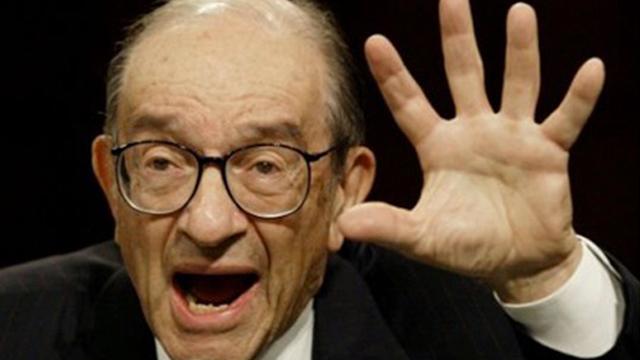
There was a time when we economists steered clear of politics. We viewed our job as describing how market economies work, when they fail, and how well-designed policies can enhance efficiency. We analyzed trade-offs between competing objectives (say, equity versus efficiency), and prescribed policies to meet desired economic outcomes, including redistribution. It was up to politicians to take our advice (or not), and to bureaucrats to implement it.
Then some of us became more ambitious. Frustrated by the reality that much of our advice went unheeded (so many free-market solutions still waiting to be taken up!), we turned our analytical toolkit on the behavior of politicians and bureaucrats themselves.
We began to examine political behavior using the same conceptual framework that we use for consumer and producer decisions in a market economy. Politicians became income-maximizing suppliers of policy favors; citizens became rent-seeking lobbies and special interests; and political systems became marketplaces in which votes and political influence are traded for economic benefits.
Thus was born the field of rational-choice political economy, and a style of theorizing that many political scientists readily emulated. The apparent payoff was that we could now explain why politicians did so many things that violated economic rationality. Indeed, there was no economic malfunction that the two words “vested interests” could not account for.
Why are so many industries closed off to real competition? Because politicians are in the pockets of the incumbents who reap the rents.
Why do governments erect barriers to international trade? Because the beneficiaries of trade protection are concentrated and politically influential, while consumers are diffuse and disorganized.
Why do political elites block reforms that would spur economic growth and development? Because growth and development would undermine their hold on political power.
Why are there financial crises? Because banks capture the policymaking process so that they can take excessive risks at the expense of the general public.
In order to change the world, we need to understand it. And this mode of analysis seemed to transport us to a higher level of understanding of economic and political outcomes.
But there was a deep paradox in all of this. The more we claimed to be explaining, the less room was left for improving matters. If politicians’ behavior is determined by the vested interests to which they are beholden, economists’ advocacy of policy reforms is bound to fall on deaf ears. The more complete our social science, the more irrelevant our policy analysis.
This is where the analogy between human sciences and natural sciences breaks down. Consider the relationship between science and engineering. As scientists’ understanding of the physical laws of nature grows more sophisticated, engineers can build better bridges and buildings. Improvements in natural science enhance, rather than impede, our ability to shape our physical environment.
The relationship between political economy and policy analysis is not at all like this. By endogenizing politicians’ behavior, political economy disempowers policy analysts. It is as if physicists came up with theories that explained not only natural phenomena, but also determined which bridges and buildings engineers would build. There would then scarcely be any need for engineering schools.
If it seems to you that something is wrong with this, you are on to something. In reality, our contemporary frameworks for political economy are replete with unstated assumptions about the system of ideas underlying the operation of political systems. Make those assumptions explicit, and the decisive role of vested interests evaporates. Policy design, political leadership, and human agency come back to life.
There are three ways in which ideas shape interests. First, ideas determine how political elites define themselves and the objectives they pursue – money, honor, status, longevity in power, or simply a place in history. These questions of identity are central to how they choose to act.
Second, ideas determine political actors’ views about how the world works. Powerful business interests will lobby for different policies when they believe that fiscal stimulus yields only inflation than when they believe that it generates higher aggregate demand. Revenue hungry governments will impose a lower tax when they think that it can be evaded than when they think that it cannot.
Most important from the perspective of policy analysis, ideas determine the strategies that political actors believe they can pursue. For example, one way for elites to remain in power is to suppress all economic activity. But another is to encourage economic development while diversifying their own economic base, establishing coalitions, fostering state-directed industrialization, or pursuing a variety of other strategies limited only by the elites’ imagination. Expand the range of feasible strategies (which is what good policy design and leadership do), and you radically change behavior and outcomes.
Indeed, this is what explains some of the most astounding turnarounds in economic performance in recent decades, such as South Korea’s and China’s breakout growth (in the 1960’s and the late 1970’s, respectively). In both cases, the biggest winners were “vested interests” (Korea’s business establishment and the Chinese Communist Party).
What enabled reform was not a reconfiguration of political power, but the emergence of new strategies. Economic change often happens not when vested interests are defeated, but when different strategies are used to pursue those interests.
Political economy undoubtedly remains important. Without a clear understanding of who gains and who loses from the status quo, it is difficult to make sense of our existing policies. But an excessive focus on vested interests can easily divert us from the critical contribution that policy analysis and political entrepreneurship can make.
The possibilities of economic change are limited not just by the realities of political power, but also by the poverty of our ideas.
3 WAYS TO SHOW YOUR SUPPORT
- Log in to post comments













